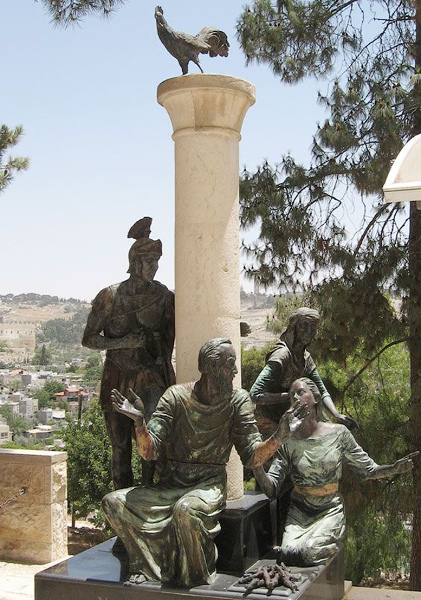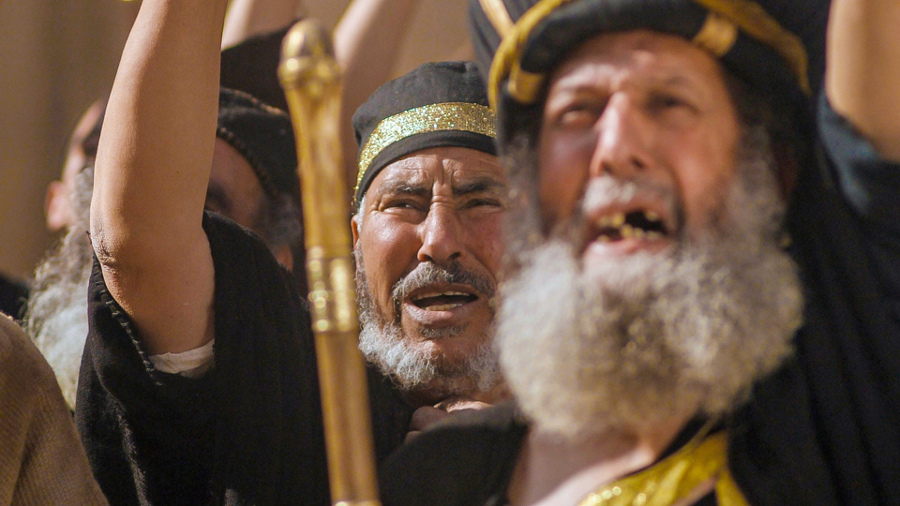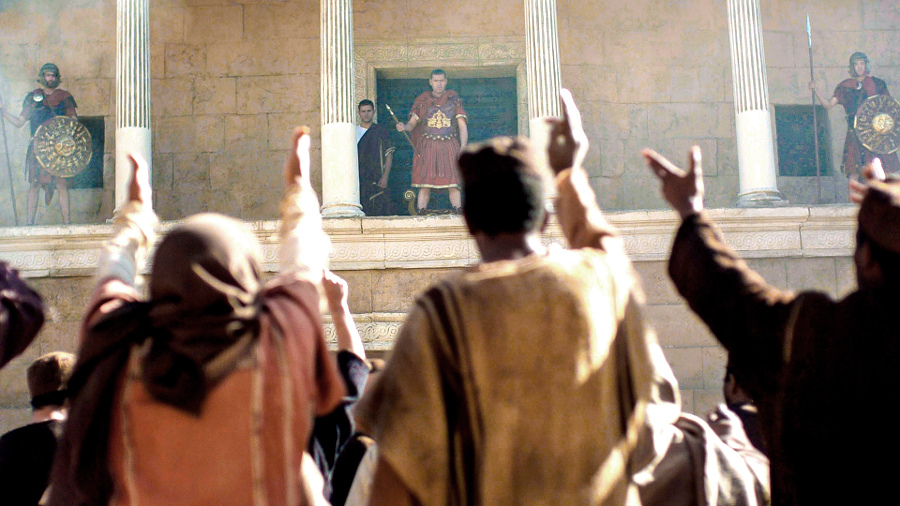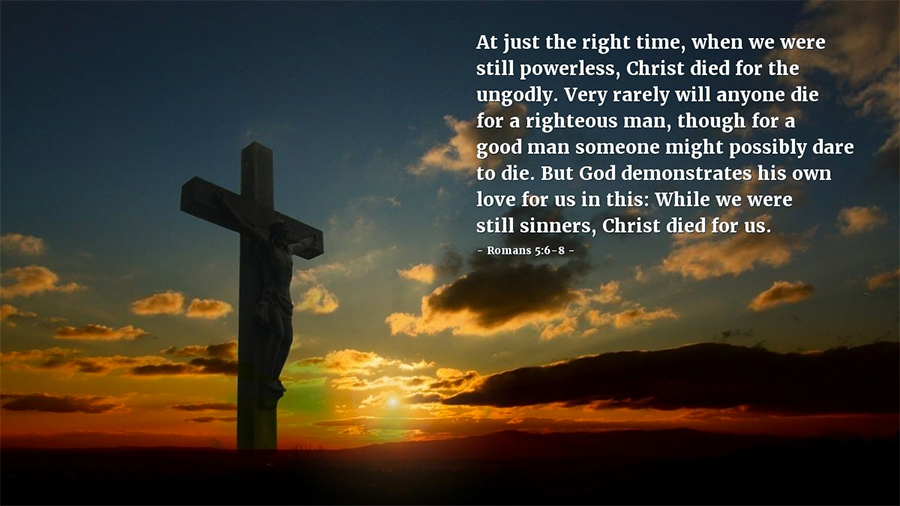"But what about you?" [Jesus] asked. "Who do you say I am?"Peter answered, "You are the Messiah" (Mark 8:29).
The last three chapters of Matthew, Mark, and Luke and the last four chapters of John tell the story of Jesus' arrest, the disciples abandoning him, Judas betraying him, and Peter denying that he knew Jesus. They also recount the illegal trials of Jesus before Pilate, Herod, and the Jewish religious leaders. The passages speak about the brutality and mockery heaped on Jesus as he was rejected, bullied by soldiers, and crucified. Then, they tell us that on Sunday morning following the Passover and the Sabbath, Jesus rose from the dead and appeared to his disciples.
 |
|
When Peter confessed Christ the first time, he knew that his Lord was all-powerful, but he did not know that Jesus would give his life as a ransom for the sins of many (Mark 10:44).
In the second instance, represented by the famous statue of Peter's three denials, he denied knowing the Lord three times - just as Jesus had warned him that he would.
In the third, Peter stood before many of the same people who had crucified Jesus and proclaimed his faith in Jesus because he had met the resurrected Christ!
James Nored speaks to us today in his video about Jesus' trials and how they point to the Lord's true identity, an identity he did not try to hide even though he chose to remain mostly silent before his accusers:
Jesus' trials focused on his true identity.
- Was Jesus the promised "King of the Jews"?
- Was Jesus God, the LORD, come in human flesh as the Son of God?
- When he stood before the religious leaders, was Jesus the Messiah, the Christ of God?
- Did Jesus do what he did because he was the Savior of the world who died as a ransom for all people and to draw all people to himself?
Jesus' identity was not up for decision during his trials and crucifixion: Humanity, religion, and political power were on trial. What they decided about Jesus was the most important decision they would ever make. They rejected Jesus as King, LORD, Son of God, Messiah, Christ, and Savior. Jesus gave his life on a cross after being condemned by the crowd. He was handed over to be crucified by Jewish religious leaders. He was executed at the command of a Roman governor by a Roman execution detail.

Now, the real trial, the real decision, is on us.
Who do we say that he is?
Who is Jesus to us to me?
We (James and Phil) believe that Jesus is who he said he was:
The high priest said to [Jesus], "I charge you under oath by the living God: Tell us if you are the Messiah, the Son of God.""You have said so," Jesus replied. "But I say to all of you: From now on you will see the Son of Man sitting at the right hand of the Mighty One and coming on the clouds of heaven" (Matthew 26:63-64).
Very early in the morning, the chief priests, with the elders, the teachers of the law and the whole Sanhedrin, made their plans. So they bound Jesus, led him away, and handed him over to Pilate.
"Are you the king of the Jews?" asked Pilate.
"You have said so," Jesus replied (Mark 15:1-2).
"Is that your own idea," Jesus asked, "or did others talk to you about me?"
"Am I a Jew?" Pilate replied. "Your own people and chief priests handed you over to me. What is it you have done?"
Jesus said, "My kingdom is not of this world. If it were, my servants would fight to prevent my arrest by the Jewish leaders. But now my kingdom is from another place."
"You are a king, then!" said Pilate.
Jesus answered, "You say that I am a king. In fact, the reason I was born and came into the world is to testify to the truth. Everyone on the side of truth listens to me" (John 18:34-37).
"But what about you?" Jesus asks each of us. Everything hinges on how we each choose to answer that question!

Neither James nor I can answer that question for you. Each person has to answer that question for her/himself. We encourage you to read John chapters 18 through 21. Look into your heart and see if there is something in Jesus' story, his sacrificial death, and triumphant resurrection, that resonates in your heart. For many of us who believe, the words of the apostle Paul explain why this decision is so important to us:
You see, at just the right time, when we were still powerless, Christ died for the ungodly. Very rarely will anyone die for a righteous person, though for a good person someone might possibly dare to die. But God demonstrates his own love for us in this: While we were still sinners, Christ died for us.Since we have now been justified by his blood, how much more shall we be saved from God's wrath through him! For if, while we were God's enemies, we were reconciled to him through the death of his Son, how much more, having been reconciled, shall we be saved through his life!
(Romans 5:6-10)

Special thanks for the use of images related to Jesus' ministry from The Lumo Project and Free Bible Images for use on this week's post.












Comments
Have thoughts on this article? Leave a comment